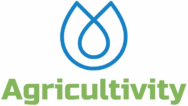As urban agriculture gains momentum, hydroponic systems are becoming an increasingly popular way to grow plants in limited spaces. Hydroponics refers to the practice of growing plants in nutrient-rich water without soil. By using this method, urban farmers can optimize plant growth and increase yields with minimal resources.
One of the critical factors for a successful hydroponic system is creating effective nutrient solutions. Hydroponic nutrient solutions provide plants with essential nutrients such as nitrogen, phosphorus, and potassium. These nutrients are typically obtained from fertilizers and are essential for plant growth and development.
Here are some essential tips for creating effective hydroponic nutrient solutions:
1. Check pH levels regularly:
pH levels in the hydroponic nutrient solution are critical for plant growth. The ideal pH range for most plants is between 5.5 and 6.5. If the pH is too high or too low, it can affect nutrient absorption and cause plant stress. Use a pH meter to measure the pH levels regularly and adjust as necessary.
2. Use the correct nutrient ratios:
Different plants require different nutrient ratios for optimal growth. Ensure that you use the right nutrient solution for the type of plants you are growing. Most hydroponic nutrient solutions come with instructions on the correct nutrient ratios for different types of plants.
3. Monitor nutrient levels:
Regularly monitor the nutrient levels in the hydroponic solution. As plants absorb nutrients, the nutrient levels in the solution decrease. Refill the nutrient solution as needed to maintain optimal nutrient levels.
4. Use high-quality water:
The quality of water used in the hydroponic system can impact plant growth. Ideally, use filtered or purified water to prevent contamination of the nutrient solution.
5. Incorporate sustainable practices:
Incorporating sustainable practices in hydroponic systems can increase plant growth and reduce the environmental impact of urban farming. Consider using renewable energy sources and using organic fertilizers in the nutrient solution.
In conclusion, hydroponic nutrient solutions are essential for successful urban farming. By following these essential tips, you can optimize plant growth, increase yields, and create a sustainable agricultural system. Whether you’re an experienced urban farmer or just starting, hydroponics can be a valuable tool for growing plants in limited spaces.





